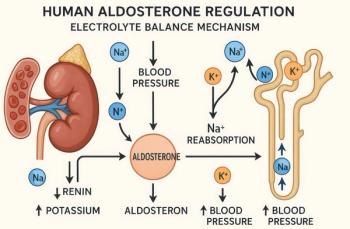
ACC: Torcetrapib Studies Offer More Questions About HDL Booster
NEW ORLEANS -- Torcetrapib, an investigational cholesteryl ester transfer protein (CTEP) that spikes HDLs but boosts blood pressure, may have proatherogenic effects, according to results from a pair of ultrasound studies.
NEW ORLEANS, March 28 -- Torcetrapib, an investigational cholesteryl ester transfer protein (CTEP) that spikes HDLs but boosts blood pressure, may have proatherogenic effects, according to results from a pair of ultrasound studies.
Researchers said B-mode ultrasonography of the carotid arteries found an increase in carotid-intima media thickness associated with torcetrapib while intravascular ultrasound measurement of coronary arteries found no regression of plaque burden.
Both studies -- RADIANCE-1 and ILLUSTRATE were reported at the American College of Cardiology meeting here and simultaneously published in the New England Journal of Medicine. RADIANCE 2 findings, from the same investigators as RADIANCE-1, were also reported at ACC.
Moreover, when the drug was combined with atorvastatin (Lipitor) it obviated the beneficial effect of the statin on carotid intima-media thickness.
But neither study revealed the "smoking gun" that could explain the most unexpected effect of the drug-the excess cardiovascular mortality that last December prompted Pfizer to abandon further clinical development of what was once considered one of the most promising cholesterol drugs since the advent of statin therapy.
Nor did these studies provide an answer to the lingering question: Was the excess mortality with torcetrapib peculiar to this particular molecule or was it evidence of potential problem with other CETP inhibitors under development?
Steven Nissen, M.D., of the Cleveland Clinic, lead author of the intravascular ultrasound study, said the data cannot answer that question. But he concluded that "given the potential importance of developing therapies to raise HDL cholesterol levels, it would seem imprudent to abandon studies of CETP inhibition because of the failure of this one drug."
Newsletter
Enhance your clinical practice with the Patient Care newsletter, offering the latest evidence-based guidelines, diagnostic insights, and treatment strategies for primary care physicians.


































































































































